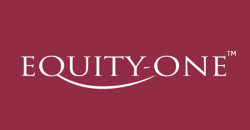A New Phase in Commercial Lending
- 30 November 2022

A range of approaches to commercial loans are taken in the non-bank sector, which has seen its profile grow during the pandemic and is now poised to enter a new phase.
Non-bank lenders are gearing up for change in the commercial loan sector as the economy emerges from the pandemic into a new environment with its own challenges.
Themes range from simply being a reliable partner to how to deal with the prospect of interest rate rises, but major players in the sector are all keen to move forward and help brokers provide the best service and products.
The current market is ripe for brokers to diversify into the commercial area, says Liberty group sales manager John Mohnacheff.
“Adding commercial lending to their suite of services provides brokers with more ways to help a wider range of customers,” he says.
Mohnacheff points out that getting into the largely underserved market now would do the community a service, while also allowing the broker to forge long-standing, deeper relationships with referral partners such as accountants and real estate agents.
Among the issues brokers might face, Liberty is there to help with tailored training and development sessions to help them both create and convert opportunities.
“We have specialised BDMs, underwriters and support personnel available to offer hands-on assistance to brokers,” Mohnacheff says.
Opening lines of communication with business partners has also enabled Liberty to significantly improve turnaround times, a critical factor in the commercial loan space.
In terms of the recent economic climate, record-low interest rates have encouraged investors to enter the commercial property market, he says. “And with Australians continuing their support of online retail, we also saw a steady demand for warehousing.”
A rise in interest rates is on the horizon, but Mohnacheff says Liberty is committed to providing the right support to weather this.
He says the non-bank recognises that there is often more to a customer’s story than is shown in their credit file, and Liberty is set up to get the full picture and support brokers in a changing landscape.
But in general, opportunities for brokers are good, with appetite for credit high due to post-pandemic demand.
“The need for business and commercial finance is extensive, with everything from business premises and office fit-outs to trucks and equipment required,” he says.
“Many businesses are also seeking funds to help seize opportunities, such as purchasing stock at a discounted rate or securing staff to keep up with growth.”
Alternative solutions
Thinktank general manager Peter Vala says external factors are having a major impact on businesses’ cash flow, be it the increased cost of goods, higher operational expenses due to rising fuel costs, or just general destabilisation.
Lockdowns and a stop-start economic environment have made it difficult to demonstrate consistent and reliable income via traditional financial statements.
“If cash flow is an issue, we will always try to help where we can,” he says.
One example of how Thinktank aims to be flexible is its Mid Doc product, which offers alternative forms of income verification should past financial statements not present a true measure of current trading performance.
“All that’s required is a self-certification income declaration, along with one other form of supporting documentation,” Vala says.
Likely interest rate increases also have some lenders concerned about borrower serviceability ratios and the prospect of annual reviews and property revaluations for commercial facilities.
Vala emphasises that Thinktank’s long-term ‘set and forget’ approach is a strength in such a market, with no covenant reporting or regular revaluation requirements.
“If the property market softens for whatever reason, our loan products remove the risk and inconvenience involved in borrowers needing to restructure their debt or pledge additional security,” he says.
Commercial lending accounts for over 60% of Thinktank’s origination profile.
The lender is also exclusively associated with the third party channel and has strong relationships with brokers and aggregators. Part of the reason for this is its ongoing support for brokers in terms of education and training.
Vala says the market for commercial property finance is likely to continue quite solidly over the next year, especially within the industrial space.
Commercial is an excellent way for brokers to strengthen and deepen relations with a customer, he adds, because the duration of a commercial loan traditionally exceeds that of a residential loan, providing a more consistent and diversified income.
Vala says an area of opportunity exists in commercial SMSF lending across the full spectrum of retail, office, industrial, and professional suites.
A holistic view
Pepper Money launched its commercial loan product in 2019 due to strong demand from brokers, but the non-bank lender has not stood still since then.
“We’re constantly listening to broker feedback and hearing what their customers’ needs are,” says head of commercial Malcolm Withers.
“Today our Prime and Near Prime commercial property loans include full-doc and alt-doc options for customers who need commercial lending solutions up to $3m in loan size. By watching the evolving needs of our customers, we recently we launched 30-year loan terms and the option to provide one-year financials under our full-doc policy”.
“Some of our unique features include a 100% offset sub-account, free redraw at no charge, and online banking tools,” he adds.
Pepper Money delivers a unique process that allows loans to be lodged via ApplyOnline. Withers explains that each application is individually assessed by a highly experienced member of its underwriting team.
“Having a holistic view of their situation can not only provide a better outcome but help put more customers on their path to success,” he says.
The three main advantages offered by Pepper Money are an ability to deliver a fast commitment and provide confidence in lodging a deal, an assessment that provides a broker direct-to-credit engagement, and a fast time to cash where that enables a seamless settlement, Withers says.
“Recently we turned around a deal in as little as three weeks with our fast assessment, and a process that was easy to use where brokers could submit online directly into the credit queue. “But the biggest thing is allowing the brokers to talk directly to our credit managers,” he adds.
Having access to commercial means that brokers can diversify their revenue stream and build stronger relationships with clients not just for home loans but for business solutions too.
“Pepper Money is seeing a growth in the number of brokers taking up commercial, because we’ve made it easy to integrate commercial into a broker’s business; we have simplified the process to lodge transactions and taken the complexity out of commercial.”
Pepper Money provides training for brokers who want to get into commercial but uses the same ApplyOnline functionality as it uses for home loans, making the process very easy, Withers says.
“A customer is too busy in their day-to-day business to have to worry about their loan. Customers need a product which has the flexibility to grow with them and the features and benefits that support them.”
In recent years, an increasing number of customers have needed debt structuring, access to longer loan terms and access to higher LVRs, Withers says.
“We have now rebalanced our focus and are very excited to be supporting both existing and new customers with more real-life commercial real estate loan options.”
Withers believes Australian businesses have shown great resilience during the pandemic, given the number of pivots that many have had to perform.
“We’ve seen industrial asset values perform very well over the past 12 months,” he adds, “whilst office space still lags in growth, and there’s higher vacancy rates in major capital cities.”
An exclusive focus
Equity-One, which is exclusively focused on the commercial lending space, wants to keep things simple.
“We have only one product; that is commercial first mortgages that are interest only and designed to be repaid at any time with no break costs so the borrower can get on with their plans,” says managing director Dean Koutsoumidis.
Consistency of approach is the name of the game, with the need for a reliable back-up plan just as important as it was 20 years ago.
Koutsoumidis says Equity-One’s ideal borrower is one that is essentially “bank quality” but not “bank ready”, and many of these clients will eventually go back to a long-term product with their bank, or switch to a construction funder.
Koutsoumidis sees the market as a constantly evolving thing, but says the basic issues do not change much, despite pandemics, geopolitics or the problem of the day.
“The problems are the basic ones. How can I be competitive? How do I create my presence in the market? How fast or efficiently can I execute what the client expects? These are the challenges of running a business.”
Most long-standing businesses understand the need to survive another day, he says, and the role of brokers is more important than ever.
“The great thing for brokers now is that lenders are really open to helping them. The importance of the relationship between broker and lender is, I believe, at an all-time-high.”
Commercial is a key part of any broker’s portfolio, and it’s important to understand clients’ needs well.
“As is the case for us, brokers’ relevance to their clients is a constant test, and they understand that commercial loans, like other forms of credit, are a tool they need to have in their toolkit.”
Things looked set to become even busier over the next 12 months.
“Recently, we have partnered with Westlawn Finance and Consolidated Operations Group, which is a very exciting development for us,” says Koutsoumidis.
“We see exciting growth on the horizon, in many sectors.”
Fast and flexible
Aquamore aims to provide a service that counters negative practices in the market, such as lenders suddenly increasing interest rates or throwing in extra fees.
“Everything is up front, honest, open. And that’s the way that we plan to build and grow the business,” says Matthew Porch, head of third party distribution at the non-bank lender.
Fast turnaround times are also a selling point given the long waits common at major lenders.
“[This] has led to a growth in our sector where clients aren’t just interested in the cheaper rates, they just want a service and … a product that they can rely upon.”
Around 95% of Aquamore’s business comes from finance brokers. Business is accelerating in 2022 with the removal of various COVID-related restrictions, but the market is very different to what it was pre-pandemic.
Porch notes that local councils are investing in small businesses, and hospitality is seeing an uptick as people show a preference for regional getaways over international given testing requirements and the unstable geopolitical situation.
“Aquamore has seen exponential growth over the last 12 to 18 months,” he says.
The company’s balance sheet is now pushing $100m, a remarkable feat considering that its $120m warehouse facility only came online in September 2021.
“We have had very little negative feedback,” Porch says. “Our strongest referrals are guys that didn’t even know we existed six months ago.”
Over the last few months, Aquamore has added to its sales team and invested in its credit department.
“We’re adapting to the growth that we are seeing. If it makes sense, if it’s judgmental credit requirements, we’ll come in, we’ll give you a fast answer, and we’ll give you a flexible response.”
Aquamore is 100% focused on commercial funding for company borrowers, with finance for residential, commercial and land projects. Porch says the non-bank will shortly be moving into construction funding and plans to launch a sub-$5m traditional construction finance product in the next few months, with demand expected for projects away from central areas as work from home becomes a permanent part of the economy.
View original article here
